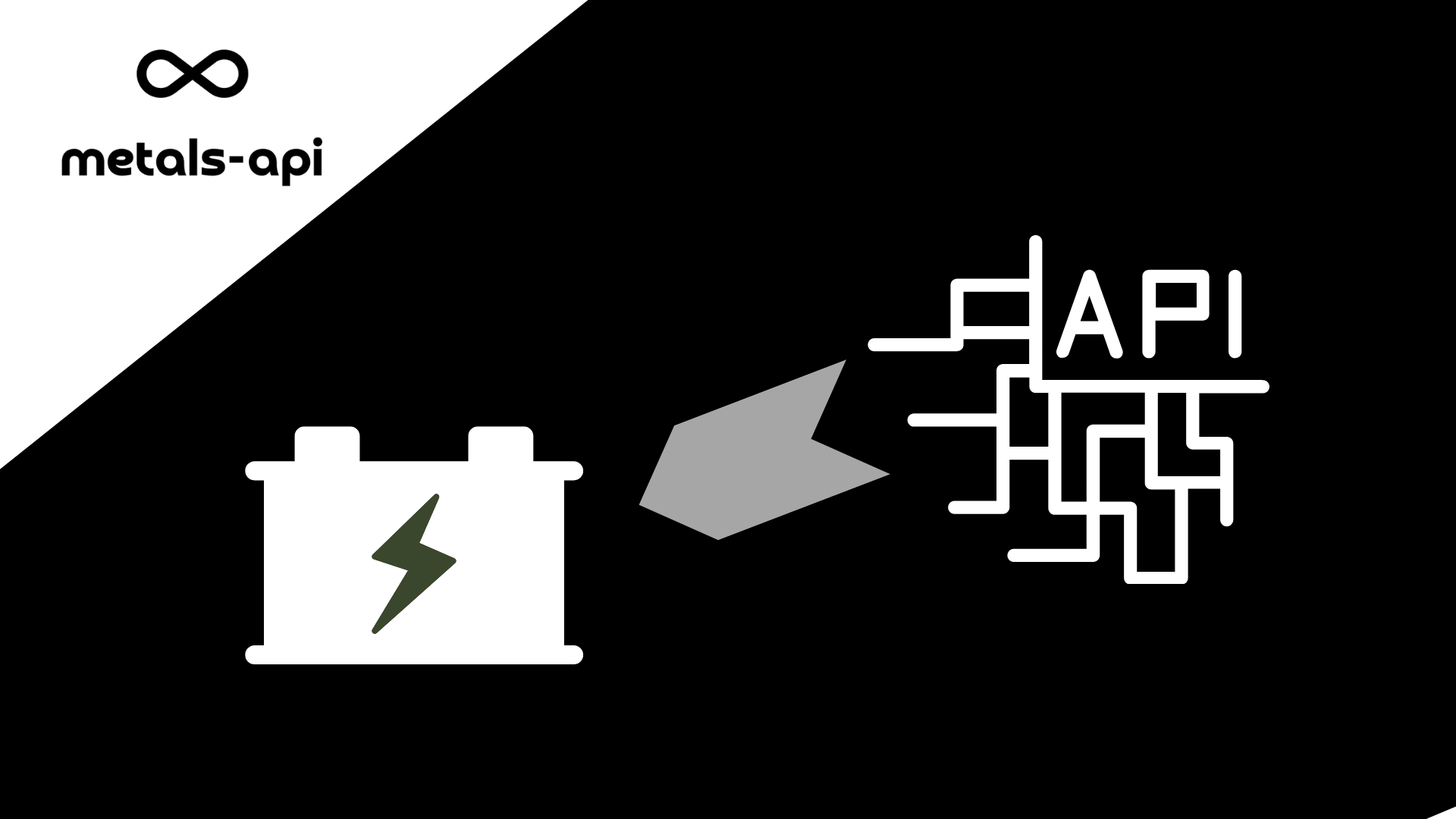Lithium Carbonate API: How To Get These Rates With An API

In the rapidly advancing fields of technology and industry, having access to accurate and real-time data is essential for staying competitive. Lithium carbonate, a critical component in battery production for electric vehicles and various high-tech applications, is one such resource where precise pricing information is crucial. For developers and businesses looking to integrate this data into their applications, the Metals-API provides a comprehensive solution. In this post, we will explore how to use the Metals-API to get lithium carbonate rates efficiently.
Why Lithium Carbonate Data Matters
Lithium carbonate plays a pivotal role in the production of batteries, ceramics, glass, and other materials. As the demand for electric vehicles and renewable energy solutions grows, so does the need for accurate and timely data on lithium carbonate prices. Access to this data allows manufacturers, investors, and researchers to make informed decisions, manage costs, and capitalize on market trends.
Introduction To Metals-API
Metals-API is a leading provider of real-time and historical precious metals data, including lithium carbonate. It offers a robust and user-friendly API that simplifies the process of obtaining accurate price data, making it an essential tool for developers and businesses.
Key Features Of Metals-API
- Real-Time Data: Metals-API delivers up-to-the-minute price information for lithium carbonate, ensuring users have the most current data available.
- Historical Data: In addition to real-time updates, Metals-API provides comprehensive historical data, allowing for trend analysis and forecasting.
- Global Coverage: The API aggregates data from multiple sources worldwide, offering a holistic view of the market.
- High Reliability: Metals-API ensures high accuracy and uptime, making it a dependable source for critical data.

Benefits of Using Metals-API for Lithium Carbonate Rates
- Enhanced Decision Making: With real-time and historical data, users can make well-informed decisions quickly, improving efficiency and reducing risk.
- Competitive Edge: Access to the latest price information allows businesses to respond swiftly to market changes.
- Cost Efficiency: Automating data retrieval through an API eliminates the need for manual data entry, saving time and resources.
- Scalability: Metals-API can be easily integrated into various applications and scaled to meet the growing needs of a business.
Practical Applications Of Metals-API
- Manufacturing: Manufacturers can use Metals-API to monitor lithium carbonate prices and adjust their procurement strategies accordingly.
- Investment Platforms: Investors can integrate the API into their trading platforms to track price fluctuations and make data-driven decisions.
- Research and Development: R&D teams can leverage historical data from Metals-API to study market trends and forecast future prices, aiding in product development and innovation.
- Supply Chain Management: Companies can optimize their supply chain operations by using real-time price data to manage inventory and procurement strategies effectively.
How to Integrate Metals-API to Get Lithium Carbonate Rates
Step 1: Sign Up and Get an API Key
To start using Metals-API, sign up on the Metals-API website and obtain your unique API key. This key will be used to authenticate your requests.
Step 2: Understand the Documentation
Review the API documentation provided by Metals-API to understand the available endpoints, parameters, and response formats. This step is crucial for integrating the API correctly.
Step 3: Set Up Your Development Environment
Ensure your development environment is configured to make HTTP requests. You'll need tools and libraries appropriate for your programming language of choice.
Step 4: Implement the API
Use the provided API key and documentation to implement API calls in your application. Here’s a sample code snippet in Python to get you started:
api_key = 'YOUR_API_KEY'
base_url = 'https://metals-api.com/api/latest'
params = {
'access_key': api_key,
'base': 'USD',
'symbols': 'LITHIUM_CARBONATE'
}
response = requests.get(base_url, params=params)
data = response.json()
if response.status_code == 200:
lithium_price = data['rates']['LITHIUM_CARBONATE']
print(f"Current price of Lithium Carbonate: ${lithium_price} USD")
else:
print(f"Failed to retrieve data: {data['error']['info']}")
Replace 'YOUR_API_KEY' with your actual API key to fetch the latest lithium carbonate price data.
Step 5: Monitor and Maintain
Regularly monitor the performance of your API integration and stay updated with any changes or updates from Metals-API to ensure continuous and accurate data flow.
Conclusion
Integrating Metals-API into your applications to retrieve lithium carbonate price data can significantly enhance your decision-making processes, provide a competitive edge, and streamline operations. With its real-time and historical data, global coverage, and high reliability, Metals-API simplifies data access for developers and businesses alike. By following the steps outlined above, you can seamlessly integrate this powerful tool into your workflows and stay ahead in the dynamic market of lithium carbonate. Start leveraging Metals-API today to drive success and innovation in your industry.